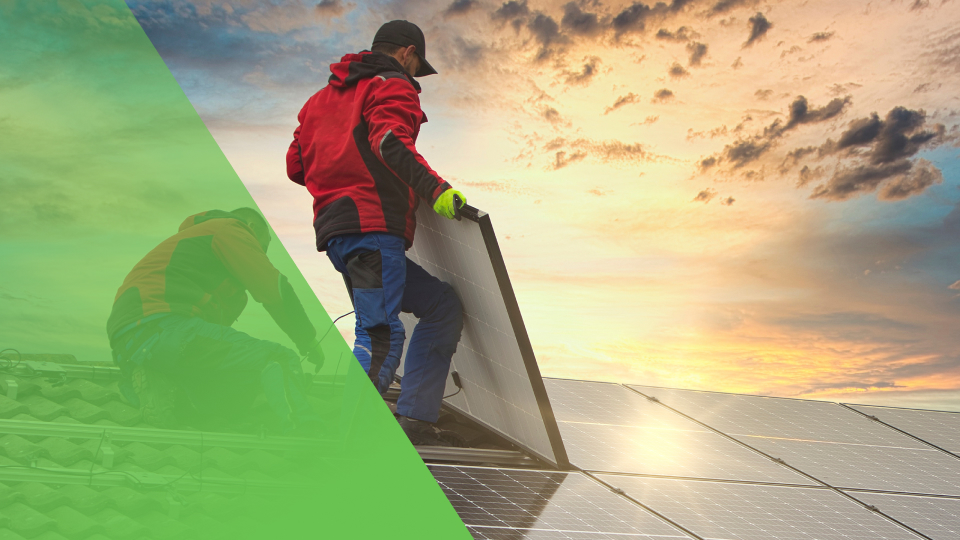

Battery Storage for Photovoltaics – Store Energy Instead of Wasting It
Reading Time
Date
5 minutes
7. October 2025
Many households feed valuable solar power into the grid and buy it back at a high price in the evening. Why? Because photovoltaic systems produce most of their electricity when it is hardly needed: during the day. The solution: a battery storage system combined with an energy management system. This allows you to increase your self-consumption, reduce electricity costs, and become less dependent on energy providers.
What Happens Without Battery Storage?
A PV system produces the most electricity at midday. Working families have the greatest demand for electricity in the morning and evening. At these times, we cook, shower, turn on the lights, or charge our electric cars.
Without storage, this surplus solar power flows into the public grid. The remuneration for this is low, you often simply give away your energy.
With a battery storage system, you can store the electricity and use it later when you really need it. So the rule is: store electricity instead of giving it away.
How Does a Battery Storage System Work in Photovoltaics?
A battery storage system works like a large rechargeable battery for your home:
- When the sun shines, it charges itself with excess solar power.
- In the evening or at night, it releases the stored energy again – for lighting, appliances, or other purposes.
The combination of photovoltaics and battery storage ensures that you need to draw less electricity from the grid. Simply explained: you use your own electricity instead of feeding it into the grid.
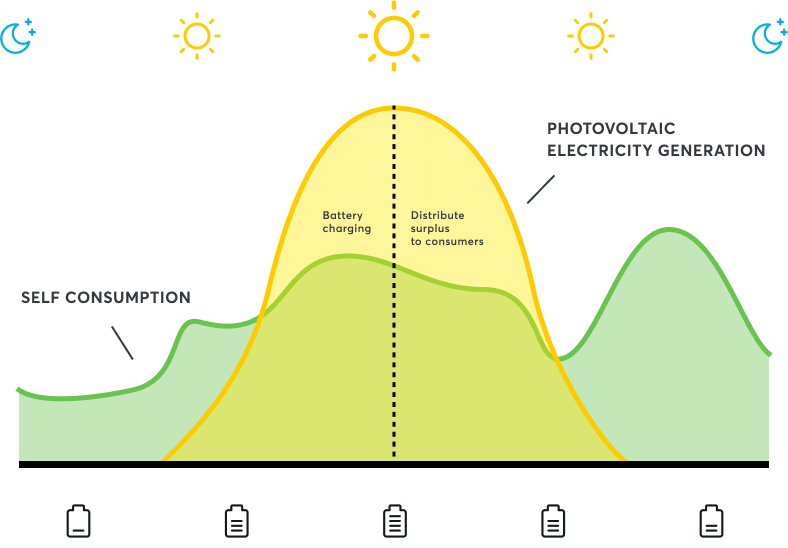
What Are the Advantages of Battery Storage?

More self-consumption & lower electricity costs
With a PV storage system, you can consume up to 70 percent of the electricity you generate yourself. The more you consume yourself, the less expensive electricity you need to purchase from your utility company.

Sustainable energy use
Every kilowatt hour of solar power you use yourself saves CO₂. With a battery storage system, you can contribute to a more sustainable future.

Greater independence from the power grid
Whether electricity prices are rising or the grid is fluctuating, a battery storage system allows you to remain independent. Your household will continue to be powered reliably by your own electricity.
”Battery storage systems are the new major lever of the energy transition. PV, storage, dynamic consumers and an intelligent energy management system are the boosters for reducing energy costs in buildings. Self-consumption and energy cost reductions of 80% are absolutely realistic values.”
How Loxone Makes Your Battery Storage Even Smarter
With a battery storage system, you not only use your solar energy more efficiently – with Loxone, you get the most out of it. That’s because your PV system, storage system and all devices in your home work together automatically.
An example from everyday life:
The sun is shining, your PV system is producing more electricity than is currently needed. The Loxone Energy Manager decides what to do with the surplus based on individual priorities.
If the storage unit is full, the energy is automatically used intelligently according to further priorities. Surplus energy is only fed into the grid once all other needs have been covered.
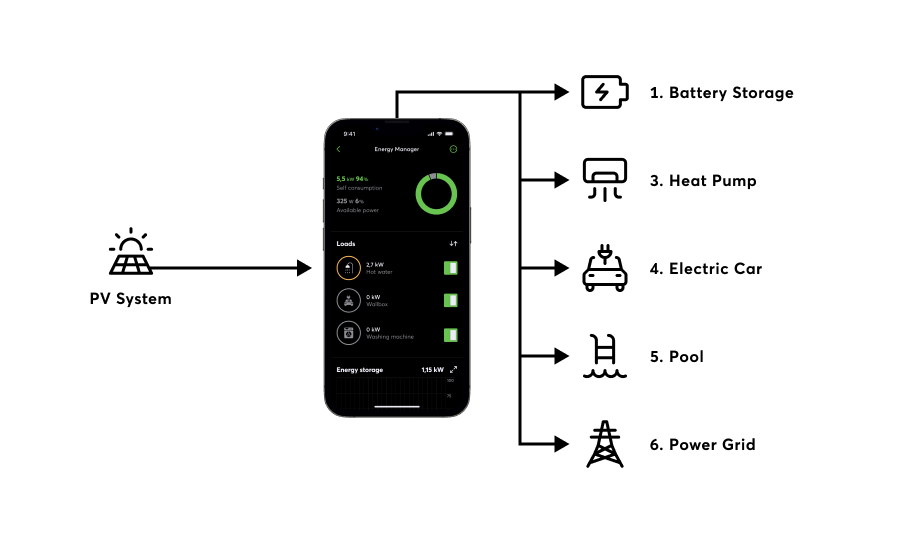
This ensures that your solar power stays in your home and not a single kilowatt hour is wasted. You can also change the priority settings at any time in the Loxone App.
How Does Loxone Help Reduce Your Energy Costs?
In addition to the Energy Manager, which intelligently distributes surplus energy to appliances and storage devices, intelligent load management ensures that heat pumps, washing machines, wall boxes, and other devices can run optimally without overloading.
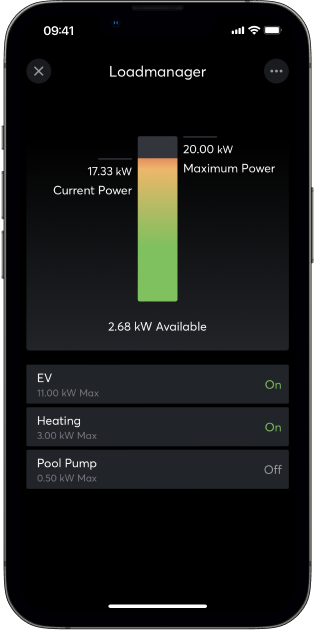
The Energy Flow Monitor visualizes in real time how much electricity the PV system is producing, how much electricity is currently being consumed and where, thus revealing opportunities for optimization.
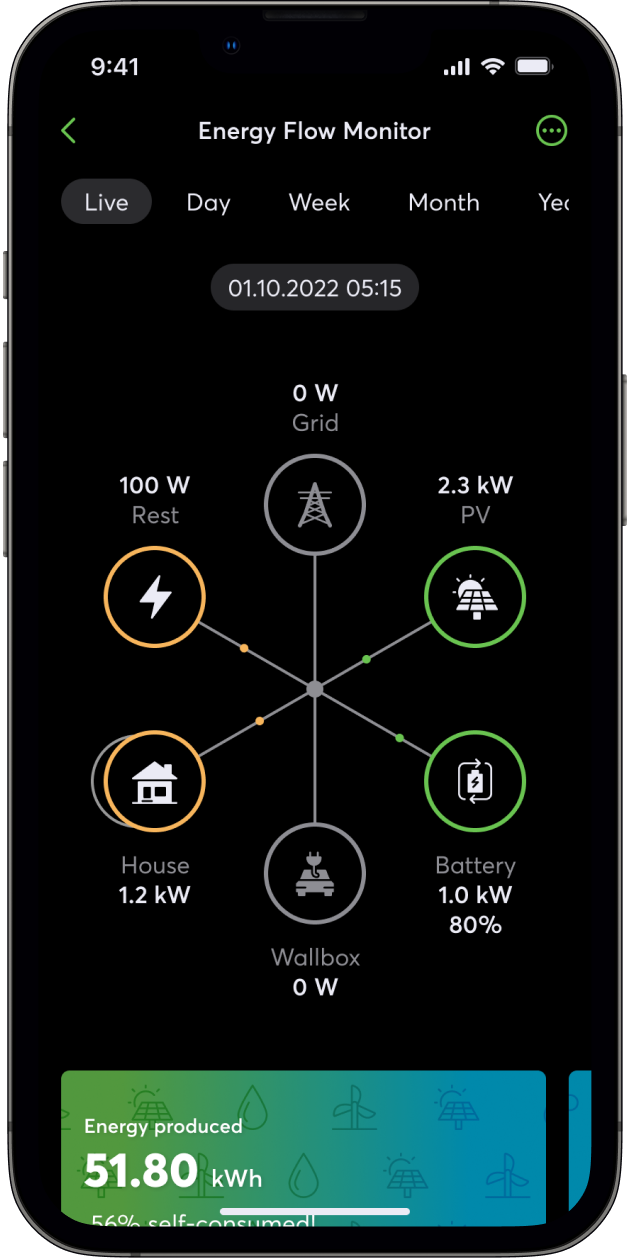
With the information provided by the Weather Service, rooms can be deliberately overheated or cooled in order to use excess energy in a smart and energy-efficient way for the future.
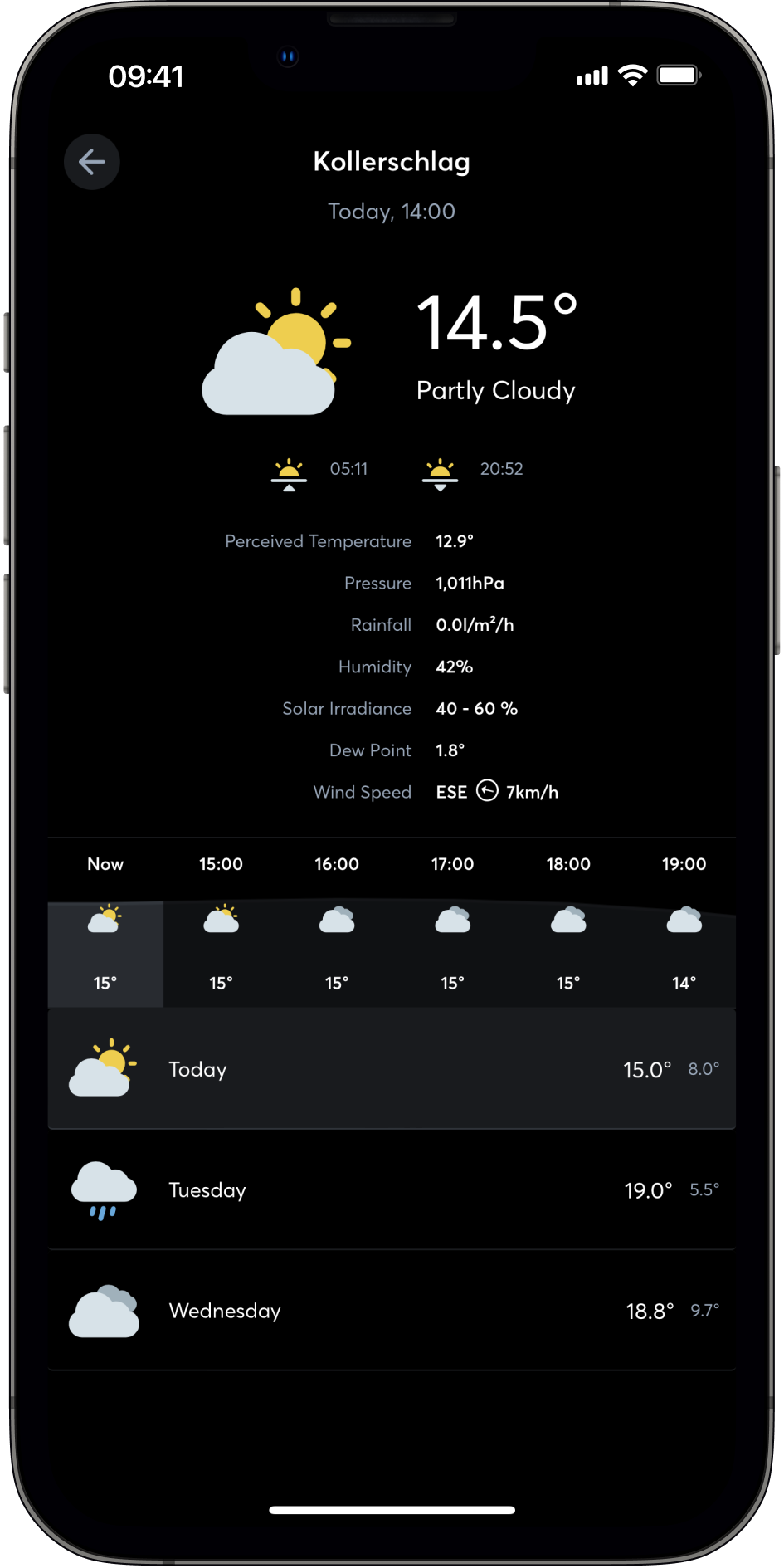
In addition to your own consumption, the Spot Price Optimizer automatically helps you shift large appliances to cheaper tariff periods or charge your storage with cheap electricity.
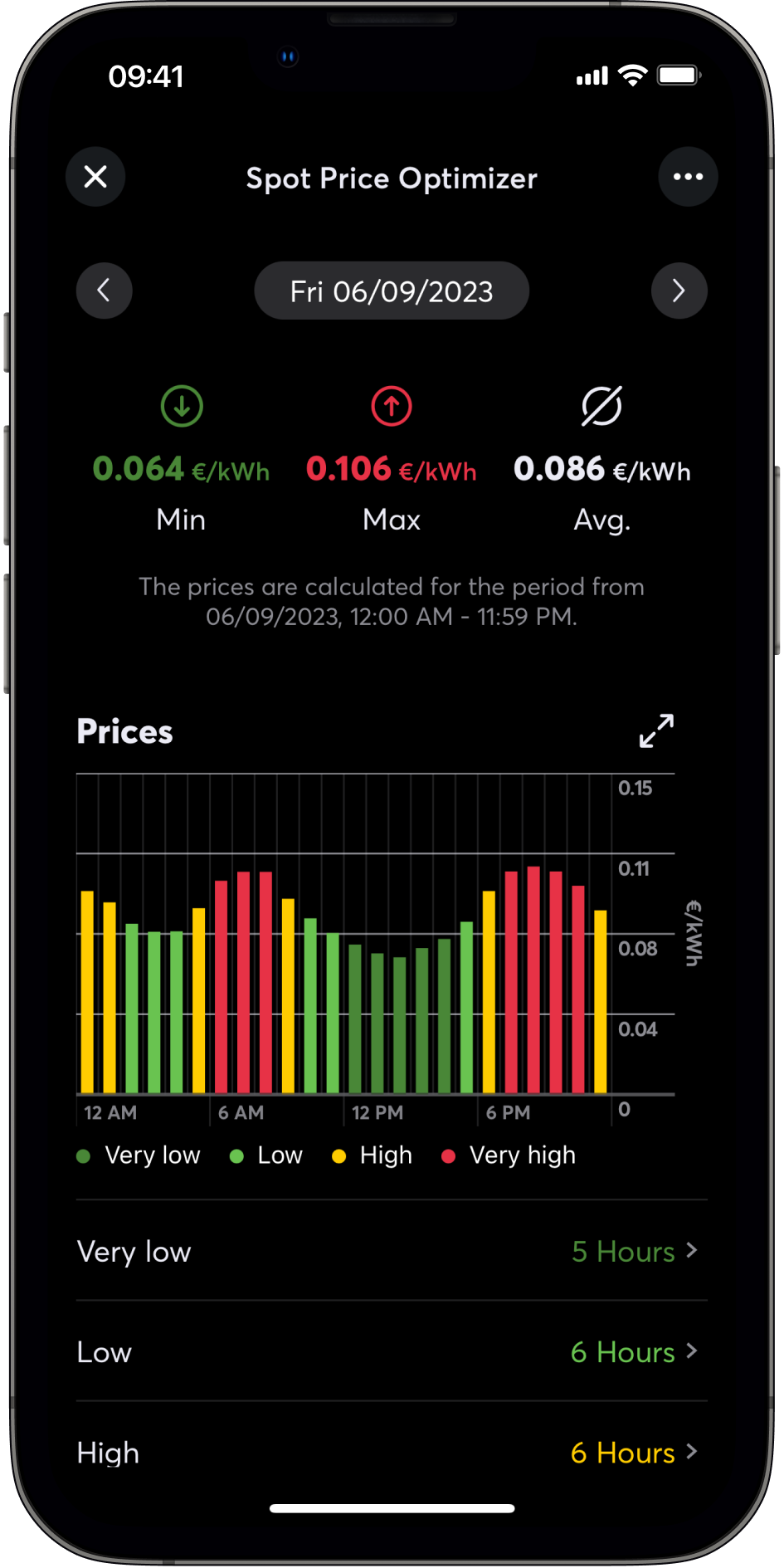
In general, the Loxone App allows you to keep track of generation, storage levels, consumption and all other areas in your building at all times.
This interaction makes your battery storage more than just a “rechargeable battery.” It becomes part of a smart system. This system makes your home energy-efficient, sustainable, and future-proof.
Get the Most Out of Your Solar Power System
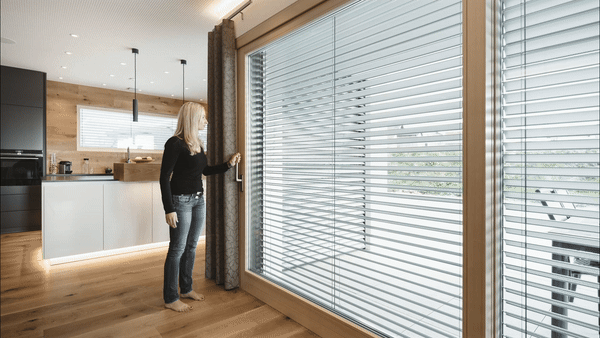
Around 20 years ago, feed-in tariffs were a strong argument in favor of photovoltaic systems: anyone who fed solar power into the public grid received attractive remuneration. This made many private systems economically viable.
Today, the situation is different: in many countries feeding power into the grid is no longer worthwhile, while self-consumption is the better choice. This is exactly where battery storage comes into play.
Simply upgrade to Loxone now and get the most out of your solar power system!
Interested?
If you have any questions, contact us or become a partner in under two minutes by registering directly - all by yourself!
Do you have any questions?
Feel free to contact us. Our expert advisors will be more than happy to help!
Become a Loxone Partner
Become a Loxone Partner in just 2 minutes - without any risk or hidden costs!